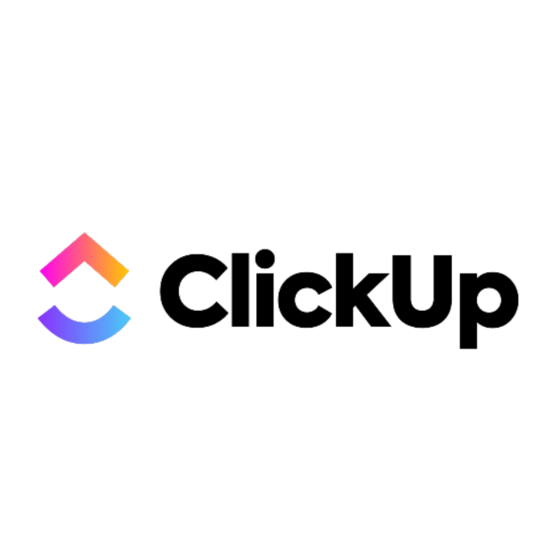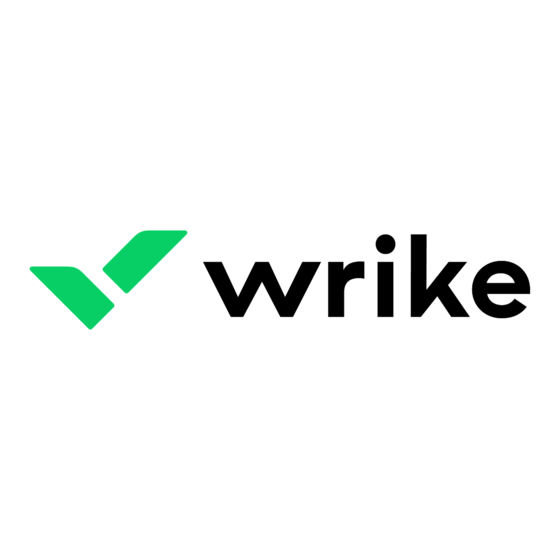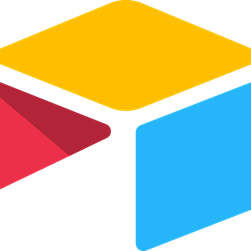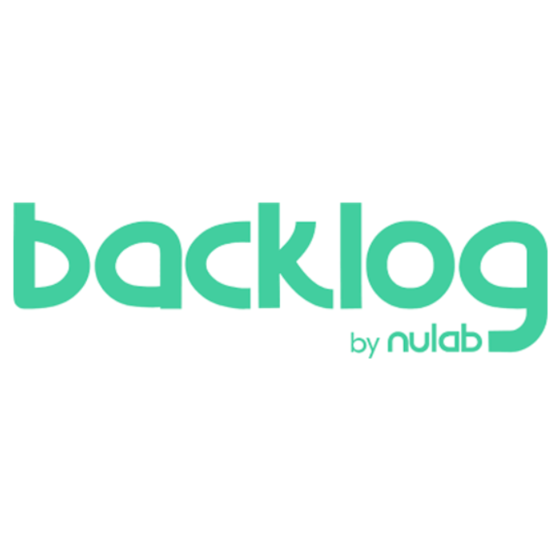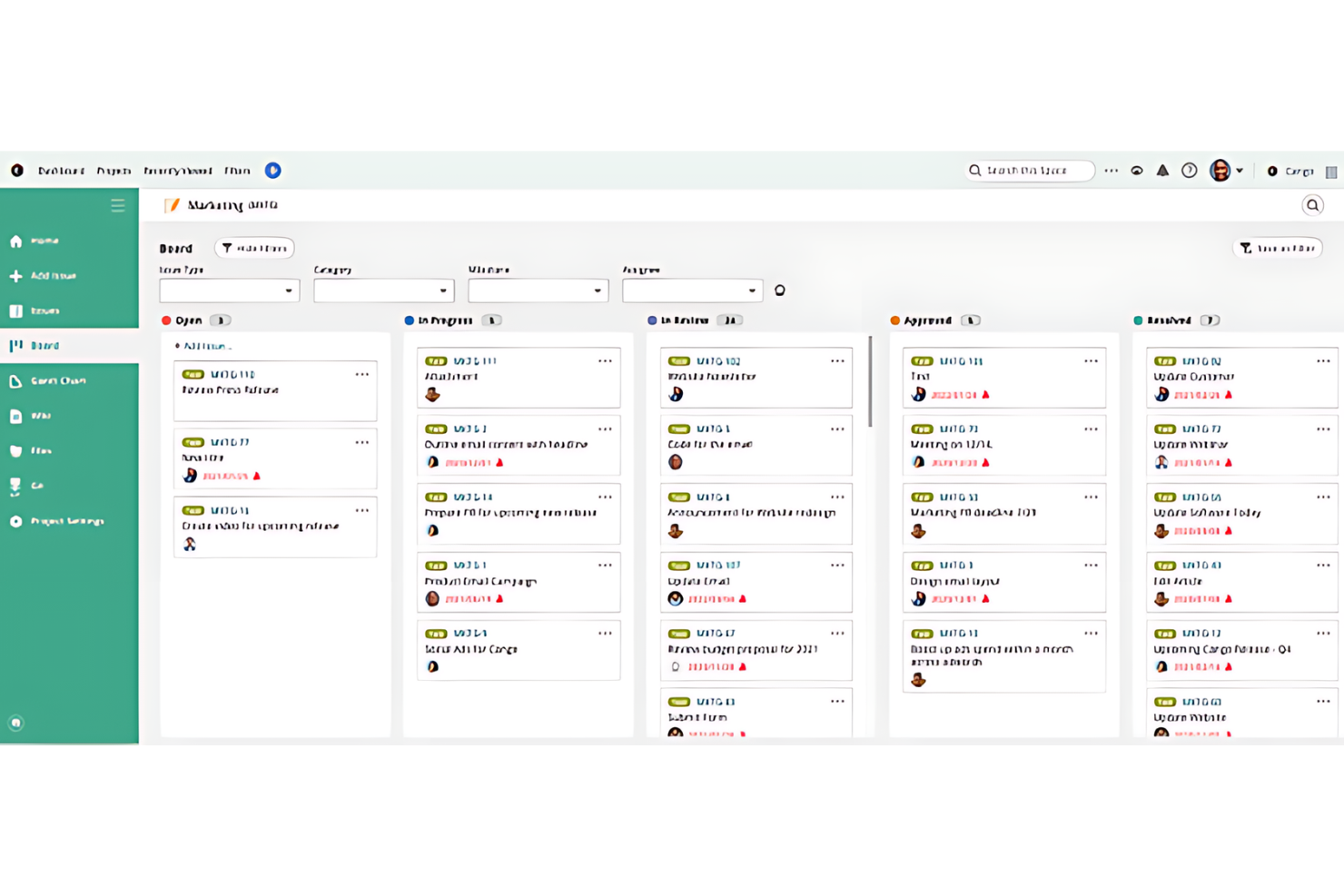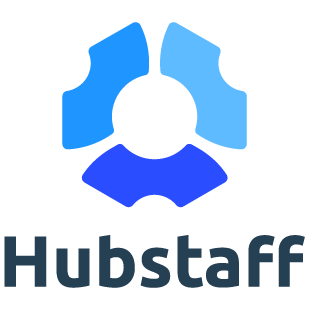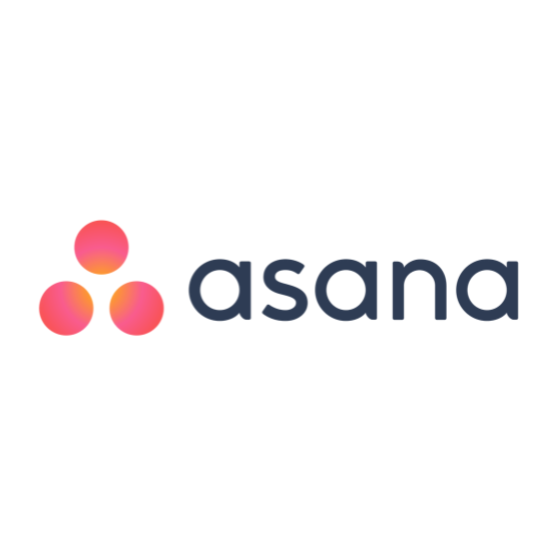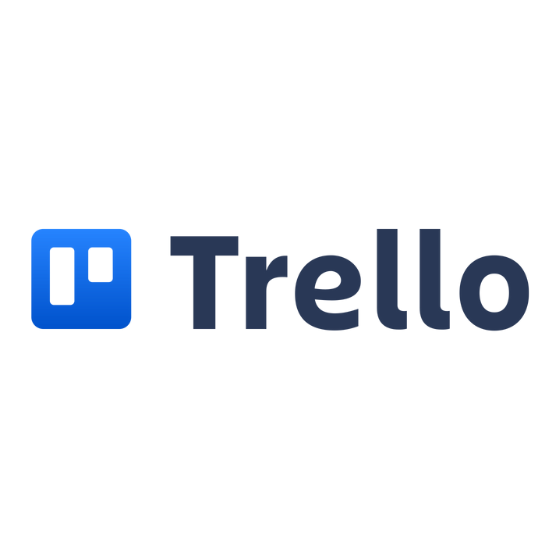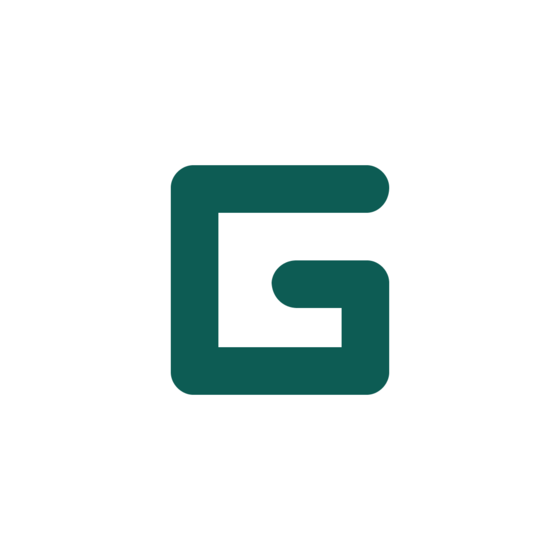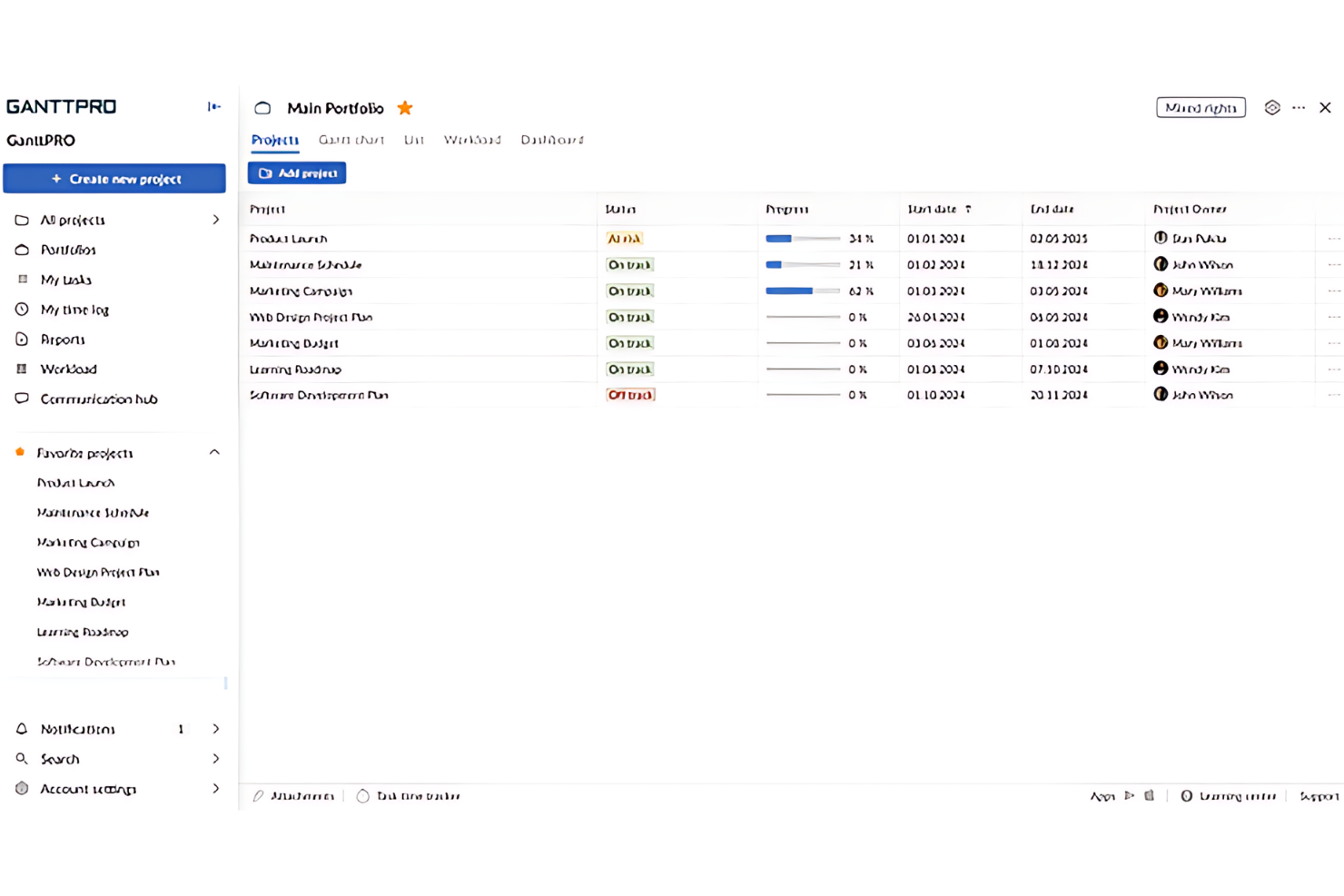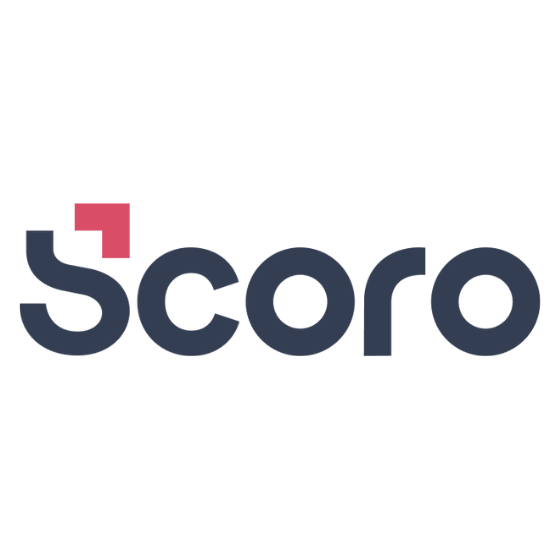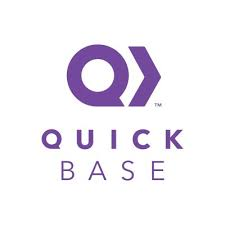Best Project Management Software with Jira Integration Shortlist
Get free help from our project management software advisors to find your match.
Selecting the best project management software with Jira integration for your team can be a challenge. Not only are you looking for software that integrates with Jira, but you also want a high-quality tool that suits your needs. Luckily, there are many options available, and I am here to help you parse through them. Drawing from my extensive experience in managing digital projects and utilizing various project management tools, I am happy to share my research to simplify this decision for you.
The software I recommend in this article all integrate with Jira software, aligning various aspects of your projects with Jira’s agile capabilities. However, I also prioritized finding tools with excellent project management features, such as collaboration and project tracking in one centralized location, that can help you address challenges such as disjointed team communication, inefficient task management, and lack of real-time project visibility. In this article, I will help you identify the Jira-integrated tool that will best address your project team’s greatest needs and challenges.
Why Trust My Software Reviews
I’ve been testing and reviewing project management software since 2012. As a project manager myself, I know how critical and difficult it is to make the right decision when selecting software. I invest in deep research to help my audience make better software purchasing decisions.
I’ve tested more than 2,000 tools for different project management use cases and written over 1,000 comprehensive software reviews. Learn how I stay transparent & my review methodology.
Best Project Management Software with Jira Integration Summary
| Tools | Price | |
|---|---|---|
| Airtable | From $20/user/month (billed annually) | Website |
| Forecast | Pricing upon request | Website |
| Backlog | From $35/month for up to 30 users | Website |
| Hubstaff | From $7/user/month | Website |
| GoodDay | From $6/user/month | Website |
| Asana | From $10.99/user/month (billed annually) | Website |
| Trello | From $5/user/month (billed annually) | Website |
| GanttPRO | From $7.99/user/month (billed annually) | Website |
| Scoro | From $26/user/month (min 5 seats) | Website |
| Quickbase | From $35/user/month with a 20 user minimum | Website |
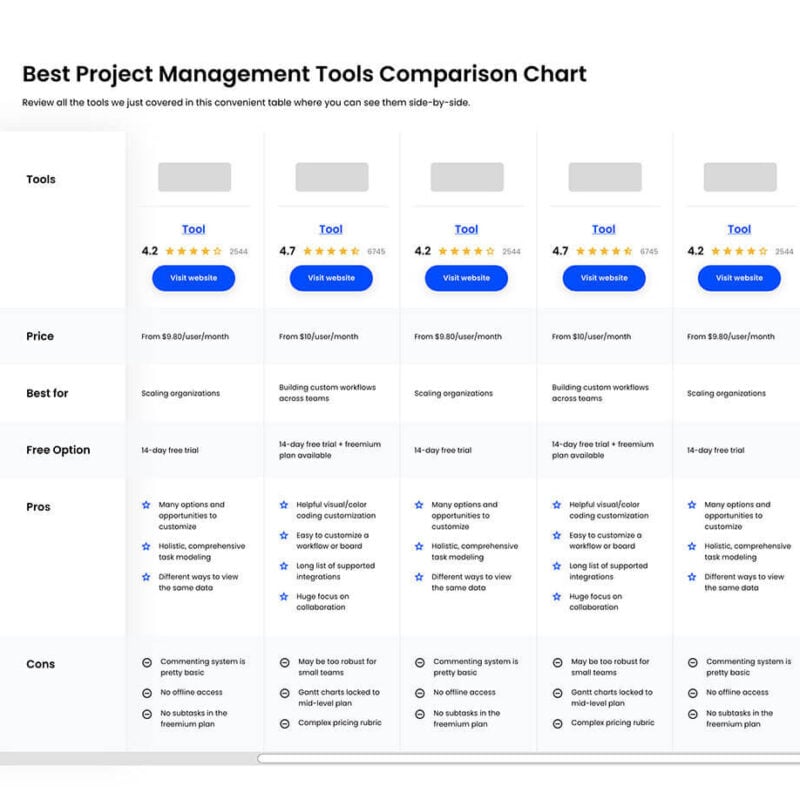
Compare Software Specs Side by Side
Use our comparison chart to review and evaluate software specs side-by-side.
Compare SoftwareHow to Choose Project Management Software with Jira Integration
As you work through your unique software selection process, keep the following points in mind:
- Ease of Integration: The software must integrate seamlessly with your existing tools and systems, especially Jira. This can help your team avoid having to deal with complex setups and ensures smooth data flow between applications.
- User-Friendliness: The software should be easy-to-use and intuitive to navigate, as a complex interface can slow down project progress and frustrate team members. Tools with a clean user interface and straightforward navigation ensure that all team members can use it efficiently, increasing productivity.
- Collaboration Features: Effective collaboration is key in project management. Choose software that enhances communication and teamwork, with features like real-time updates, shared dashboards, and comment threads. This is particularly useful for remote teams or projects involving multiple departments, as it can help ensure that everyone stays on the same page.
- Customization Options: Different projects have different needs, so the ability to customize workflows, dashboards, and reports ensures that the software can adapt to various project requirements. This flexibility is vital for organizations managing diverse project types and scales, as it allows them to tailor the tool to their specific processes.
- Scalability: The software should be able to grow with your organization, so look for solutions that can handle an increasing number of projects, users, and data. This is essential for businesses expecting growth or handling large, complex projects that require robust management tools, ensuring that the software remains effective as demands increase.
Best Project Management Software with Jira Integration Reviews
Here are my top 10 project management tools that integrate with Jira. Each review provides a comprehensive analysis of each tool’s features, strengths and weaknesses, and the ideal use cases for these integrated solutions.
Airtable is a versatile project management tool that combines the functionality of a spreadsheet with a database to create highly customizable workflows and collaborative environments.
Why I Picked Airtable: I chose Airtable for this list because of its unique approach to project management, which allows teams to organize and manage their tasks and data through customizable tables, views, and workflows, enhancing collaboration and productivity. Its customizable workflows especially allow for a high degree of personalization, differentiating Airtable from other project management tools. I believe Airtable is the best tool for customizable workflows because it empowers teams to tailor their project management experience with custom interfaces and automations that fit their needs.
Standout features & integrations:
Features include a rich set of automations, an interface designer for creating custom interfaces, and a variety of views to tailor data visualizations. It also offers reporting tools to measure and analyze insights.
Integrations include Jira, Slack, Google Calendar, Microsoft Teams, Dropbox, Box, Evernote, Asana, and Trello.
Pros and cons
Pros:
- Integrates with a wide range of tools including Jira, Slack, and Salesforce
- Rich set of automation to streamline tasks
- Customizable workflows with a variety of views and interface options
Cons:
- AI integration requires an additional add-on purchase
- The free plan has limitations on records per base and the number of editors
Forecast is an AI-powered project management tool that combines resource scheduling, time tracking, and project management features for efficient planning. It stands out for its AI-powered automation, offering smart project planning and resource allocation.
Why I Picked Forecast: I chose Forecast for its unique AI-driven approach to project management, which sets it apart from other software. Its intelligent forecasting and task automation capabilities in particular make it my top choice for AI-powered automation. Forecast can also use AI to help predict project timelines and resource needs, which are essential for efficient project delivery.
Standout features & integrations:
Features include AI-driven resource planning, auto-scheduling, predictive analytics, reporting and analytics tools, customizable workflows, budget management, and time tracking.
Integrations include Jira, Slack, Google Calendar, Microsoft Teams, Trello, Asana, GitHub, Zapier, Harvest, and QuickBooks.
Pros and cons
Pros:
- Predictive analytics for better decision-making
- Integration with leading platforms like Jira and QuickBooks
- AI-driven resource and project planning
Cons:
- Annual commitment is needed for the best pricing
- Minimum user requirements may exclude small teams
Backlog is a comprehensive project management tool that streamlines the process of managing tasks, code, bugs, and documents. It offers a unified platform that supports a wide range of project management activities.
Why I Picked Backlog: I selected Backlog for its ability to combine various project management functions into a single, cohesive tool, which distinguishes it from other software. In my opinion, Backlog is the best for all-in-one collaboration because it provides a centralized platform for teams to collaborate on projects, track issues, and manage code repositories, eliminating the need to switch between different tools.
Standout features & integrations:
Features include Gantt charts for project planning, kanban-style boards for task management, burndown charts for sprint tracking, and integrated code management tools like Git and SVN. It also offers customizable issue tracking and IP address control for security.
Integrations include Jira, Slack, GitLab, GitHub, Jenkins, Zapier, Redmine, Asana, Google Drive, Dropbox, and Microsoft Teams.
Pros and cons
Pros:
- Features customizable issue-tracking
- Includes built-in code management tools
- Integrates multiple project management functions
Cons:
- Some features require a learning curve
- The free plan is limited to 10 users and 1 project
Hubstaff is a project management tool with a focus on time tracking. It stands out for its integrated time tracking feature, which is particularly effective when used in conjunction with Jira.
Why I Picked Hubstaff: I selected Hubstaff for the list due to its comprehensive time tracking feature that integrates directly with Jira, providing you with a clear view of project progress and team productivity. I believe Hubstaff to be the best tool for integrated time tracking because it doesn’t just offer time tracking, but also geofencing, automatic timesheets, and detailed reporting, which are essential for effective project oversight.
Standout features & integrations:
Features include precise time tracking on various devices, automated timesheets, geofencing for monitoring employee locations, and in-depth time reports that contribute to business improvement. It also offers analytics on workforce productivity and tools for managing project costs and budgets.
Integrations include Jira, Trello, QuickBooks, Asana, GitHub, GitLab, Slack, Salesforce, Zapier, and Basecamp.
Pros and cons
Pros:
- Geofencing feature for location-based tracking
- Automated timesheets simplify payroll processes
- Detailed time tracking with direct Jira integration
Cons:
- Higher monthly billing rates compared to the annual plan
- Pricing includes all team members, regardless of time-tracking usage
GoodDay is a work management platform that combines high-level planning, project and product management, and task organization features.
Why I Picked GoodDay: I chose GoodDay for this list because of its comprehensive suite of features that cater to diverse project management needs and its ability to adapt to different project methodologies. I believe GoodDay is the best tool for flexible project methodologies because it offers over 20 different views for task visualization, extensive customization options, and a productivity suite that includes meetings, files, reminders, chats, and more, all of which contribute to its versatility in managing projects.
Standout features & integrations:
Features include unlimited project hierarchy, resource planning and workload visualization, and a productivity suite that enhances team collaboration. It also offers native integrations with popular tools and an API for custom connections.
Integrations include Jira, G Suite, Gmail, Slack, Google Docs, Google Drive, Google Calendar, Dropbox, Box.com, Single Sign On, GitHub, GitLab, Email, Asana, Trello, and supports import & export functionalities with CSV and PDF formats.
Pros and cons
Pros:
- Provides a comprehensive productivity suite
- Offers extensive customization options
- Supports a wide range of project methodologies
Cons:
- Native integrations are limited compared to some competitors
- The platform's extensive features may require a learning curve for new users
Asana is a comprehensive project management tool designed to help teams coordinate their work, from daily tasks to strategic initiatives, to meet company goals.
Why I Picked Asana: I chose Asana for this list because its intuitive design and powerful integrations make it a versatile tool for various types of teams. The platform supports both simple task management for small teams and complex project planning for enterprise-level organizations. In particular, I believe that Asana is the best tool for connecting work to goals because it provides clear goal-setting functionalities, which are essential for teams to understand how their daily tasks impact the organization's success.
Standout features & integrations:
Features include task and project management, customizable views like lists, boards, and timelines, and workflow automation to streamline processes. It also offers reporting dashboards for tracking progress and workload management tools to balance team capacity.
Integrations include Jira, Slack, Google Calendar, Dropbox, Microsoft Teams, Salesforce, Tableau, Power BI, Adobe Creative Cloud, GitHub, and Zoom.
Pros and cons
Pros:
- Workflow automations can help reduce manual work
- Customizable views and reporting dashboards
- Comprehensive task management capabilities
Cons:
- Some users may find the interface overwhelming due to the number of features
- Pricing can be higher compared to some competitors
Trello is a web-based project management application that uses a card-based system to help users visualize tasks and workflows.
Why I Picked Trello: I chose Trello for this list because of its intuitive and visual approach to project management. Its card-based system stands out for its simplicity and flexibility, making it different from other project management tools. I believe Trello is the best tool for teams that value visual project management because it enables teams to see the progress of tasks at a glance, which is crucial for maintaining a clear overview of projects.
Standout features & integrations:
Features include Trello’s board, list, and card system, which provide a clear structure for organizing tasks and tracking progress. The platform also offers various views such as Timeline and Calendar to help teams manage deadlines and schedules.
Integrations include Jira, Slack, Confluence, Google Drive, Dropbox, Box, OneDrive, Salesforce, Evernote, and Mailchimp.
Pros and cons
Pros:
- Wide range of integrations and views
- Flexible board, list, and card system
- Intuitive visual interface
Cons:
- May not be suitable for highly complex project management needs
- Can become cluttered with many cards and lists
GanttPro is an online project management tool that specializes in Gantt chart creation, providing clear visual project timelines and task organization.
Why I Picked GanttPro: I chose GanttPro for this list because of its focused approach to project visualization and management through Gantt charts. Consequently, I believe GanttPro is the best tool for Gantt chart creation because it offers a comprehensive set of tools specifically designed to create, manage, and share Gantt charts effectively, ensuring that project planning and tracking are both visually appealing and highly functional.
Standout features & integrations:
Features include task management, collaboration, resource management, time tracking, project portfolio management, customizable workflows, budget management, and advanced project scheduling.
Integrations include Jira, Slack, OneDrive, Google Drive, Google Calendar, Trello, Asana, Microsoft Project, Microsoft Excel, Zapier, Dropbox, and GitHub.
Pros and cons
Pros:
- Offers a variety of integrations for enhanced collaboration and resource management
- Real-time synchronization with Jira Cloud for improved project tracking
- Specialized in Gantt chart creation for clear project visualization
Cons:
- Plans are only available for an annual subscription
- Basic plan requires 5 users minimum, which may not be ideal for smaller teams or individual users
Scoro is a comprehensive platform for managing agency, consultancy, and professional services businesses that is designed to deliver projects from quote to cash.
Why I Picked Scoro: I chose Scoro for the list because it provides a unified platform that caters specifically to the needs of professional services firms. Its ability to manage multiple aspects of a business, from project management to financials, makes it stand out from other project management tools. I especially believe Scoro is the best tool for professional services management because it offers a 360-degree view of each customer, real-time project profitability tracking, and the ability to manage workloads efficiently, ensuring optimal resource utilization.
Standout features & integrations:
Features include real-time Gantt charts, detailed project management capabilities, and automated routine tasks. It also offers resource planning, sales and CRM, invoicing, and cost management, all within a single system.
Integrations include Jira, Google Calendar, Microsoft Exchange, Xero, QuickBooks, Sage Intacct, Exact Online, Expensify, and Stripe.
Pros and cons
Pros:
- Wide range of integrations with popular business tools
- Real-time visibility into project profitability and resource utilization
- Comprehensive project management and financial tracking
Cons:
- May have a learning curve for new users due to its extensive features
- A minimum of 5 user seats are required for all packages
Quickbase is a low-code platform that empowers businesses to build custom project management solutions tailored to their unique needs.
Why I Picked QuickBase: I selected QuickBase for its exceptional ability to create applications that meet your unique business needs. This flexibility is what sets it apart from other project management tools. Consequently, I believe QuickBase is the best tool for dynamic work management because it empowers businesses to efficiently adapt to evolving workflows and manage tasks with agility.
Standout features & integrations:
Features include customizable dashboards, real-time reporting, and automated workflows, which are essential for managing dynamic work. The platform also offers a mobile app for access anywhere, anytime.
Integrations include Jira, Slack, Microsoft Teams, Google Workspace, Dropbox, Box, Salesforce, Microsoft Excel, Tableau, and Power BI.
Pros and cons
Pros:
- Mobile app for remote work management
- Extensive integration capabilities with other tools
- Highly customizable to fit unique business processes
Cons:
- Requires a minimum number of users to get started
- Annual billing may not be preferred by all businesses
Other Project Management Software with Jira Integration to Consider
Below is a list of additional project management software with Jira integration that did not make it to the top list, but are still worth checking out.
Related Project Management Software Reviews
If you still haven't found what you're looking for here, check out these other related tools that we've tested and evaluated:
- Project Management Software
- Resource Management Software
- Workflow Automation Software
- Task Management Software
- Collaboration Tools
- Project Tracking Software
Selection Criteria for Project Management Software with Jira Integration
Selecting project management software that integrates with Jira requires focusing on features and functionalities that address common project management team needs. As a project management software expert who has personally researched and tried these tools, I have developed a set of criteria that reflect the most important aspects buyers should consider. Additionally, the criteria are weighted to reflect their importance to my overall assessment.
Core Functionality (25% of Total Weighting Score) - To be considered for inclusion in this list, each solution had to fulfill these common use cases first:
- Task management and tracking
- Agile and Scrum support
- Time tracking and reporting
- Resource allocation and workload management
- Collaboration features, such as shared boards and communication tools
Additional Standout Features (25% of Total Weighting Score): To help further narrow down the competition, I also look for additional standout capabilities, such as:
- Unique features that set a product apart from competitors, such as advanced analytics or AI-driven insights.
- Innovative solutions, like real-time risk assessment or predictive project timelines.
- Functionality that exceeds standard offerings, such as cross-platform integration capabilities or customizable workflows.
Usability (10% of Total Weighting Score): To get a sense of the usability of each system, I considered the following:
- The balance between powerful features and a user-friendly interface.
- The design aesthetic and whether it contributes to a clear and intuitive user experience.
- Interactive elements like drag-and-drop scheduling tools or easy-to-use filtering interfaces in asset management.
Onboarding (10% of Total Weighting Score): To evaluate the onboarding experience for each platform, I considered the following:
- The availability of training videos and templates that facilitate quick learning.
- Interactive product tours and the presence of chatbots for guided assistance.
- The availability of webinars and other educational resources that help users maximize the value of their purchase.
Customer Support (10% of Total Weighting Score): To assess each software provider’s customer support services, I considered the following:
- The responsiveness and availability of customer support teams.
- The variety of support channels, such as live chat, email, and phone support.
- The depth of the knowledge base and the presence of community forums for peer assistance.
Value For Money (10% of Total Weighting Score): To evaluate the value for money of each platform, I considered the following:
- Pricing plans comparisons to ensure that prices align with the features and benefits offered.
- The scalability of pricing for growing teams and projects.
- Any free trial periods or money-back guarantees that provide a risk-free evaluation.
Customer Reviews (10% of Total Weighting Score): To get a sense of overall customer satisfaction, I considered the following when reading customer reviews:
- Overall customer satisfaction and recurring themes in feedback.
- Insights into reliability, performance, and customer service experiences.
- The frequency of updates and improvements based on user suggestions and feedback.
Trends for Project Management Software in 2024
Project management tools are rapidly evolving to meet the needs of modern project management teams. Here are some pivotal trends impacting project management tools in 2024.
- AI and Machine Learning Integration: Project management software is increasingly leveraging AI and machine learning. For example, platforms like monday.com are integrating these technologies to provide predictive analytics and task automation. The introduction of AI-powered apps can also enhance decision-making and workflow efficiency.
- Enhanced Remote and Hybrid Work Optimization: The shift to remote and hybrid work models has prompted project management tools to adapt as well. Features that support flexibility and connectivity, such as versatile board views and time tracking on monday.com, are becoming standard.
- Real-Time Collaboration and Communication: Instantaneous collaboration is often essential for project teams as they try to meet deadlines. Consequently, project management software is increasingly incorporating real-time communication features, such as board discussions and Workdocs on monday.com. These tools are complemented by third-party apps that enhance collaboration across different platforms.
- Project Transparency and Accountability: Transparency and accountability in project management are also gaining importance. Tools like monday.com are facilitating the creation of public-facing documentation and knowledge bases. This trend ensures that stakeholders have access to current project information and can maintain project accountability.
As these trends demonstrate, project management software—including those with a Jira integration—is advancing towards more intelligent and collaborative solutions that enable teams to work more efficiently and effectively.
What is Project Management Software with Jira Integration?
A project management software with Jira integration is a digital tool that connects project management functionalities with Jira—a popular project management and issue tracking software developed by Atlassian and used by teams to plan, track, and manage their work. It can be utilized by project managers, development teams, and organizations that aim to synchronize their project management efforts with technical issue tracking. The software serves to align project tasks with development cycles, track progress, and manage resources effectively.
The components of this software can include project planning, task management, resource allocation, and progress tracking, all integrated with Jira's system for issue tracking and agile project management. This integration also allows for a unified view of project timelines and development issues, facilitating communication and coordination among team members.
Features of Project Management Software with Jira Integration
Project management software with Jira integration can significantly improve the efficiency and effectiveness of managing projects. By integrating with Jira, these software solutions can offer a range of features that support teams in delivering projects successfully. Here are some key features to consider:
- Real-Time Collaboration: This feature is crucial for enabling team members to work together synchronously to maintain clear communication and ensure that everyone is on the same page, which is essential for project success.
- Task Automation: Automating routine tasks streamlines repetitive tasks, saving time and reducing the risk of human error. This also allows teams to focus on more complex project aspects.
- Customizable Workflows: This feature tailors the project management process to specific team needs. Custom workflows allow teams to work in a way that best suits their project, increasing efficiency and productivity.
- Advanced Reporting: With advanced reporting, teams can have insight into project performance to help them make data-driven decisions and keep stakeholders informed about project progress.
- Time Tracking: This can help teams with budgeting, estimating future projects, and ensuring that resources are used effectively.
- Resource Management: Effective resource management ensures that each task has the necessary personnel and tools, preventing bottlenecks.
- User Permissions: By managing user permissions, project leaders can maintain security and ensure that team members have the appropriate level of access.
- File Sharing and Attachment: Centralized file sharing ensures that all team members have access to the latest versions of documents, which is vital for maintaining consistency.
- Integration with Other Tools: Integration with tools such as CRM, version control, and communication platforms allows for a more cohesive workflow.
- Mobile Accessibility: Mobile accessibility is important for team members who need to stay updated and contribute to projects from anywhere.
These features, when combined with the ability to use Jira, create an excellent environment for managing projects of all sizes and complexities. The integration allows for a more connected and responsive approach to project management, ensuring that teams can adapt quickly to changes and maintain a high level of performance throughout the project lifecycle.
Benefits of Project Management Software with Jira Integration
Project management software with Jira integration offers advantages that can significantly improve the efficiency and effectiveness of project management within an organization. By combining the capabilities of project management tools with the specialized functions of Jira, you can expect to experience a more cohesive and controlled project management process. Here are several benefits that potential buyers should consider:
- Enhanced Collaboration: Integrating Jira with project management software allows team members to communicate and collaborate on tasks and issues in real time, fostering a more cohesive team environment.
- Centralized Information: Users benefit from having a single source of truth for project information, which reduces confusion and ensures that everyone is on the same page.
- Improved Visibility: The integration provides dashboards and reporting tools that give managers and stakeholders a comprehensive view of project status, timelines, and resource allocation.
- Streamlined Workflows: Automating workflows and connecting tasks between Jira and the project management software eliminates manual entry and helps teams work more efficiently.
- Better Resource Management: With integrated software, managers can easily track and manage resources across projects, ensuring that workloads are balanced and resources are not over-allocated.
The integration of Jira into project management software can be a smart strategic move for organizations looking to enhance their project management capabilities, including collaboration, information management, project visibility, workflow efficiency, and resource management.
Costs & Pricing for Project Management Software with Jira Integration
Understanding pricing structures is a key consideration when selecting project management software—with or without a Jira integration. Different plans cater to varying needs and budgets, so it's essential to choose the one that aligns best with your team's requirements in both features and pricing. As such, thoroughly evaluating the available pricing options can help ensure you find a solution that fits your organization's unique needs and budget constraints.
This guide provides an overview of common pricing plans for project management software with Jira integration.
Plan Comparison Table for Project Management Software with Jira Integration
| Plan Type | Average Price | Common Features |
| Free | $0 | Basic task management, limited users, basic integrations |
| Basic | From $7/user/month | Task management, limited projects, standard integrations, basic reporting |
| Standard | From $12/user/month | Advanced task management, unlimited projects, real-time collaboration, advanced integrations, customizable workflows |
| Premium | From $25/user/month | All standard features, advanced reporting and analytics, priority support, enhanced security features |
| Enterprise | Pricing upon request | All premium features, dedicated account manager, custom integrations, enterprise-level security, compliance features |
When comparing plans, be sure to assess your team size, required features, and budget constraints to decide which plan will be the best fit for your team.
Project Management Software with Jira Integration FAQs
What is Jira and why integrate it with project management software?
Jira is a popular issue and project tracking tool designed for teams of all types, from software development to agile project management. Integrating Jira with project management software allows for the synchronization of tasks and projects, enabling teams to track progress comprehensively and maintain updated workflows across different platforms.
Is it possible to automate workflows between Jira and integrated project management software?
Yes, many project management tools that integrate with Jira offer automation capabilities. This can include automatic task creation, status updates, and notifications based on triggers within Jira. Automation helps in reducing manual entry and ensures that both systems reflect the most current information.
How do I set up integration between Jira and project management software?
Setting up integration typically involves installing an add-on or using a built-in integration feature within the project management software. You will need to authenticate your Jira account and configure the settings to match your workflow requirements. It’s important to consult the documentation or support resources of the specific project management tool for detailed instructions.
Can I track time spent on tasks in Jira through integrated project management software?
Yes, some project management tools offer time-tracking features that can be synchronized with Jira. This allows team members to log time against tasks within the project management software, and have it reflected in Jira. This feature is particularly useful for teams that need to monitor time for billing or productivity analysis.
What should I do if I encounter issues with the integration?
If you face any challenges with the integration, the first step is to check the integration settings and ensure that they are configured correctly. If the problem persists, consult the support or help documentation provided by the project management software. You can also reach out to their customer support for assistance or look for community forums where similar issues may have been discussed and resolved.
What’s Next?
Want to connect with other digital project managers to share resources and best practices? Join our membership community and get access to 100+ templates, samples, and examples, and connect with 100s of other digital project managers in Slack.


